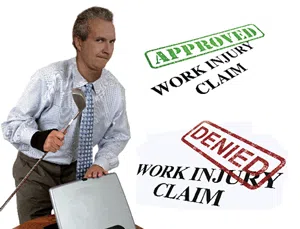The last several years has seen a major rise in high profile sexual harassment claims in all areas of society, including entertainment, politics, sports, business and news. While sexual harassment allegations and lawsuits are not new, the massive publicity they are now generating has caused an increase in sexual harassment complaints generally.
Employers are now on notice that if they do not make appropriate efforts to protect their employees from harassment or fail to properly investigate claims when they are made, they risk significant liability and overall damage to their reputation and business.
Understand the Law
Under Federal law, and generally all State law, employees are protected from acts of sexual harassment. These laws also set forth the potential fines, penalties and damages that can be assessed against an employer and individuals who violate these regulations.
Notably, even if a State has lax or employer-friendly statutes, the employer is still subject to Federal laws, which have significant penalties and damages for violating sexual harassment laws.
These damages could include payment of lost earnings, emotional damages, punitive damages and attorney’s fees.
Those who conduct business in employee-friendly States such as California and New York, face greater risks.
Employers likely will be subject to additional scrutiny for violating sexual harassment laws, and may have additional stringent requirements imposed on them to protect employees.
The most important thing for employers to do is to have a meaningful conversation with their attorney to understand the law, their obligations and what penalties they face for non-compliance.
If the employer truly understands its obligations, they have a much better chance of avoiding a major crisis.
Protect Yourself
Understanding the law is one element of protecting an employer from potential liability, but preparing an action plan to handle workplace harassment is a very critical step in avoiding problems and exposure. If the employer follows these steps, they have a greater likelihood of avoiding claims, lawsuits and workplace distractions.
Employee Manual
Most States do not require employers to have an employee manual. Nevertheless, having a bona fide written anti-discrimination and anti-sexual harassment policy is good practice and may act as a defense to sexual harassment claims.
Certain States, such as New York, have recently mandated employers to have a specific sexual harassment policy, outlining complaint and investigation procedures. Even if it’s not required, employers should have a sexual harassment prevention policy because without one, employees will not know how to appropriately make a sexual harassment claim, and employers cannot demonstrate they have a procedure for investigating a claim. Both lead to major problems for the employer.
Sexual Harassment Prevention Training
Similarly, few States mandate sexual harassment prevention training for employees or supervisors. Likely because of the #MeToo Movement, that is changing. California, and now New York, have mandated interactive sexual harassment training for employees and supervisors. Other States will likely soon join them.
The fines and penalties for non-compliance will also be significant. Whether mandated or not, sexual harassment prevention training has become a necessary and important requirement for employers.
While employers are loath to take time away from their employees’ regular work obligations and are averse to spending money for training, allocating 1 to 3 hours per year for workplace training should provide a substantial benefit to employers.
Employees need a better understanding of what is considered workplace harassment, what is and is not appropriate behavior, and how managers can spot and avoid sexual harassment.
While never perfect, appropriate training should reduce sexual harassment issues and claims.
Dedicated Human Resources
A major component of avoiding sexual harassment claims and properly investigating them is for the employer to have someone employed by the company as its dedicated human resources coordinator.
Employees need to know that if a problem occurs, that a specific person within the company is there to investigate the claim, in a timely and appropriate manner. Said human resources coordinator, with the assistance of outside counsel, needs to be trained in how to properly investigate and resolve complaints.
In many instances, if the employee believes that the company has investigated the claim, respected the parties and taken appropriate action to reprimand or train the alleged harasser, he/she will not file a lawsuit or claim with a government agency.
The world is changing. The sooner companies adapt to these changes and take appropriate steps to protect their interests, the better off they will be.



